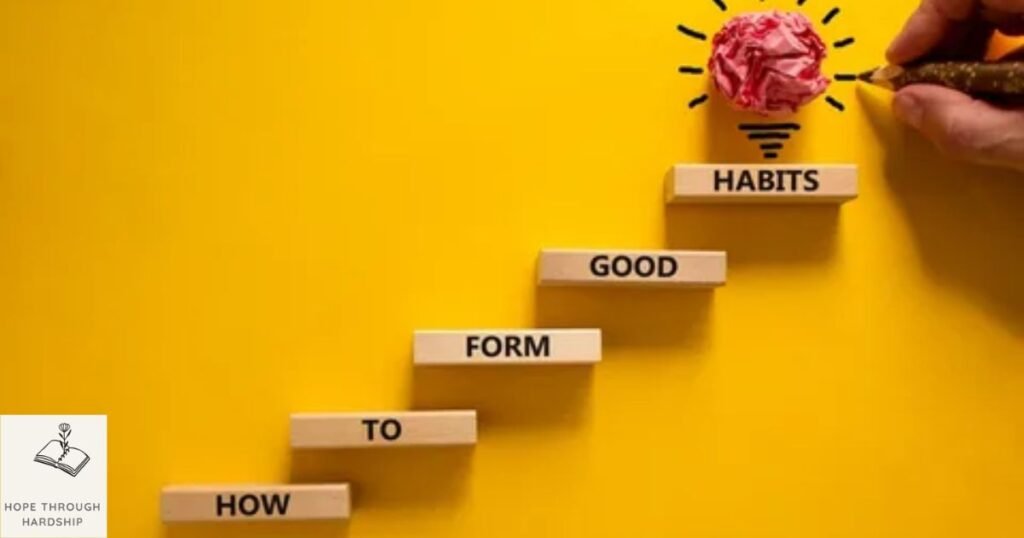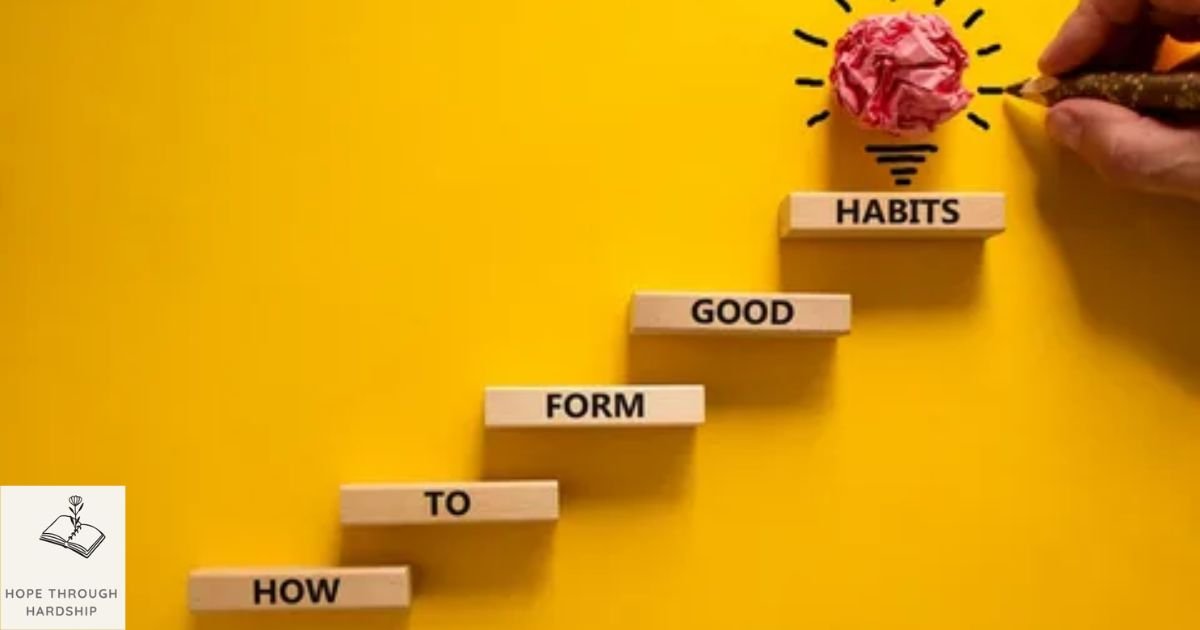
Building good habits is like planting seeds for your future self. Every small positive action you take today creates momentum that compounds over time, leading to remarkable transformations in your life. Whether you want to improve your finances,
boost your health, increase happiness, or enhance productivity, the right habits can get you there. This comprehensive list of 100 good habits will give you practical, actionable steps to create the life you’ve always wanted. Small changes lead to big results, and it all starts with choosing better habits today.
What Are Good Habits?
Good habits are positive behaviors that you repeat consistently, often without conscious thought. They’re the automatic actions that move you closer to your goals and improve your overall quality of life. Unlike bad habits that drain your energy and hold you back, good habits fuel your progress and create positive momentum.
Think of habits as your daily building blocks. When you brush your teeth every morning, exercise regularly, or save money automatically, you’re engaging in good habits. These behaviors become so natural that they require little willpower to maintain, yet they deliver powerful results over time.
The beauty of good habits lies in their compound effect. Just like money earns interest when invested, positive habits create exponential benefits. Reading for 30 minutes daily might seem small, but over a year, that’s 180 hours of learning. Saving $5 a day doesn’t feel significant, but it becomes $1,825 annually.
Good habits also reduce decision fatigue. When positive behaviors become automatic, you free up mental energy for more important decisions. Instead of debating whether to exercise, you simply do it because it’s part of your routine.
How Do You Develop Positive Habits?
Developing positive habits requires strategy, patience, and consistency. The process isn’t about perfection – it’s about progress and creating systems that work for your lifestyle.
Start Small and Build Gradually
The biggest mistake people make is trying to change everything at once. Instead of attempting to wake up at 5 AM immediately, start by waking up 15 minutes earlier each week. This gradual approach prevents overwhelm and increases your chances of success.
Use Habit Stacking
Attach new habits to existing ones. If you already drink coffee every morning, stack a new habit like writing in a gratitude journal right after your first sip. This technique, popularized by James Clear, leverages your existing routines to build new ones.
Create Environmental Cues
Make good habits easier by designing your environment to support them. Place workout clothes next to your bed, keep healthy snacks at eye level, or put books on your nightstand. When positive choices are visible and convenient, you’re more likely to follow through.
Track Your Progress
What gets measured gets managed. Use a habit tracker, journal, or phone app to monitor your consistency. Seeing your progress visually motivates you to maintain your streak and provides accountability.
Focus on Identity, Not Outcomes
Instead of saying “I want to lose weight,” think “I am someone who makes healthy choices.” This identity-based approach makes habits feel natural rather than forced. You’re not trying to read more – you’re becoming a reader.
Prepare for Obstacles
Life will test your commitment to new habits. Plan for busy days, travel, or unexpected events. Having backup plans keeps you on track when circumstances aren’t perfect.

What’s a Good Habits List?
A good habits list is a curated collection of positive behaviors organized by life categories. It serves as a menu of options for personal improvement, allowing you to choose habits that align with your goals and values.
The best habits lists are:
Specific and Actionable: Instead of “be healthier,” a good list includes “drink 8 glasses of water daily” or “take a 20-minute walk after dinner.”
Categorized for Easy Navigation: Habits grouped by themes like health, finances, or relationships help you focus on specific areas of improvement.
Scalable: Good habits can be adjusted to fit different experience levels and lifestyles. A beginner might start with 5 minutes of meditation, while someone more experienced might aim for 30 minutes.
Evidence-Based: The most effective habits lists include behaviors backed by research and proven to deliver results.
Balanced: A comprehensive list addresses multiple life areas, recognizing that true success requires attention to various aspects of well-being.
100 Good Habits List
For Money (25 Habits)
Financial habits determine your long-term wealth and security. These money habits focus on earning, saving, investing, and managing finances wisely.
Earning and Career Growth
- Wake up 30 minutes earlier for skill development
- Read industry publications for 15 minutes daily
- Network with one new professional contact weekly
- Update your resume quarterly
- Ask for feedback from supervisors monthly
- Take online courses to improve job skills
- Practice public speaking monthly
Saving and Budgeting
- Track every expense for one month
- Save 20% of income automatically
- Use the 24-hour rule before major purchases
- Compare prices before buying anything over $50
- Cancel unused subscriptions monthly
- Cook meals at home 5 days per week
- Use cash for discretionary spending
- Review bank statements weekly
Investing and Wealth Building
- Contribute to retirement accounts first
- Invest spare change through apps
- Read one financial book per month
- Check investment accounts weekly (not daily)
- Increase savings rate by 1% annually
- Diversify income sources
- Pay yourself first before any bills
Money Management
- Use a budgeting app consistently
- Pay bills on the same day each month
- Review and negotiate bills annually
For Health (25 Habits)
Physical and mental health form the foundation of a fulfilling life. These habits support your body, mind, and overall well-being.
Physical Fitness
- Exercise for 30 minutes, 5 days per week
- Take the stairs instead of othe elevator
- Do 10 push-ups every morning
- Walk 10,000 steps daily
- Stretch for 10 minutes before bed
- Try a new physical activity monthly
- Stand up and move every hour at work
Nutrition and Hydration
- Drink water immediately upon waking
- Eat a protein-rich breakfast daily
- Include vegetables in every meal
- Avoid processed foods 6 days per week
- Drink 8 glasses of water daily
- Eat slowly and mindfully
- Prepare healthy snacks in advance
- Stop eating 3 hours before bedtime
Sleep and Recovery
- Go to bed at the same time nightly
- Create a phone-free bedroom
- Use blackout curtains or eye masks
- Keep bedroom temperature between 65-68°F
- Avoid caffeine after 2 PM
- Take power naps (20 minutes max)
Mental Health
- Practice deep breathing for 5 minutes daily
- Spend 20 minutes in nature daily
- Limit social media to 30 minutes per day
- Practice gratitude before sleep
For Happiness (25 Habits)
Happiness habits focus on emotional well-being, relationships, and finding joy in daily life.
Gratitude and Mindfulness
- Write 3 things you’re grateful for daily
- Meditate for 10 minutes each morning
- Practice mindful eating once per day
- Take photos of beautiful moments
- Compliment someone genuinely each day
- Savor your morning coffee or tea
- Notice and appreciate small pleasures
Relationships and Social Connection
- Call a friend or family member weekly
- Write handwritten notes to loved ones
- Have device-free conversations daily
- Practice active listening without interrupting
- Apologize quickly when you’re wrong
- Express appreciation to others regularly
- Make new social connections monthly
Personal Growth and Joy
- Learn something new for 15 minutes daily
- Laugh out loud at least once per day
- Dance to your favorite song daily
- Create something with your hands weekly
- Volunteer for causes you care about
- Random acts of kindness weekly
- Celebrate small wins and achievements
- Keep a joy journal
- Practice forgiveness (self and others)
- Spend time on hobbies without guilt
- Say “no” to things that don’t align with your values
For Productivity (25 Habits)
Productivity habits help you accomplish more meaningful work while maintaining balance and focus.
Time Management
- Plan tomorrow’s top 3 tasks tonight
- Use time-blocking for important work
- Batch similar tasks together
- Set specific times for checking email
- Use the Pomodoro Technique (25-minute focused work blocks)
- Eliminate distractions during deep work
- Review and adjust goals monthly
Organization and Systems
- Clean and organize the workspace daily
- Use a consistent filing system
- Process paperwork immediately
- Maintain a master calendar
- Create templates for recurring tasks
- Do a weekly review of commitments
- Keep a “done” list alongside to-do lists
Focus and Energy Management
- Start with your most important task
- Single-task instead of multitasking
- Take breaks every 90 minutes
- Work during your peak energy hours
- Say no to non-essential meetings
- Delegate tasks when possible
- Set boundaries around work hours
Learning and Improvement
- Read for 20 minutes before work
- Listen to educational podcasts during commutes
- Reflect on lessons learned weekly
- Seek feedback and implement improvements
How to Use This Good Habits List

Choose Your Starting Point
Don’t try to implement all 100 habits at once. Success comes from consistency, not intensity. Start by selecting 3-5 habits that resonate most with your current goals and challenges.
Create Your Personal Habits Menu
Think of this list as a menu rather than a mandate. Some habits will appeal to you immediately, while others might not fit your lifestyle or priorities. That’s perfectly fine. Customize your selection based on:
- Your current life situation
- Available time and energy
- Personal values and goals
- Areas where you want the most improvement
The 30-Day Challenge Approach
Pick one habit from each category (money, health, happiness, productivity) and commit to practicing them for 30 days. This balanced approach ensures you’re making progress in multiple life areas simultaneously.
Track Your Progress
Use a simple habit tracker to monitor your consistency. You can create a basic chart, use phone apps, or even mark an X on a calendar. The visual feedback keeps you motivated and accountable.
Adjust and Evolve
As habits become automatic, you can add new ones or modify existing ones. The goal is continuous improvement, not perfection. If a habit isn’t working for you, try a similar one or adjust the frequency.
The Science Behind Habit Formation
Understanding how habits work makes it easier to develop them successfully. Research shows that habits form through a loop consisting of three parts:
Cue: The trigger that initiates the behavior (alarm clock, finishing lunch, walking past the gym)
Routine: The behavior itself (exercising, reading, saving money)
Reward: The benefit you gain (endorphins, knowledge, financial security)
The stronger this loop becomes, the more automatic the habit becomes. This is why starting small is so effective – it’s easier to complete the routine and experience the reward, strengthening the neural pathway.
Common Obstacles and Solutions
“I Don’t Have Time”
Start with micro-habits that take less than 2 minutes. Instead of “exercise for an hour,” try “do 5 jumping jacks.” Success with tiny habits builds confidence and momentum for bigger changes.
“I Keep Forgetting”
Use environmental cues and habit stacking. Put your vitamins next to your coffee maker, or check your budget right after you check your email. Linking new habits to established routines increases consistency.
“I’m Not Motivated”
Motivation is unreliable – systems are what create lasting change. Focus on making habits so easy that you can do them even when you don’t feel like it. Lower the bar for getting started.
“I Keep Failing”
Failure is part of the process, not evidence that you should quit. If you miss a day, just restart the next day. One bad day doesn’t erase previous progress. Focus on consistency over perfection.
Creating Your Personal Habits Action Plan
Step 1: Assess Your Current Situation
Identify which areas of your life need the most attention. Are you struggling with finances, health, happiness, or productivity? Start there.
Step 2: Choose Your First Habits
Select 2-3 habits that feel manageable and exciting. Mix easy wins with more challenging habits to maintain motivation.
Step 3: Set Up Your Environment
Remove obstacles and create supportive conditions. If you want to read more, put books everywhere. If you want to eat healthier, stock your kitchen with nutritious options.
Step 4: Start Small
Begin with the minimum viable version of each habit. You can always increase intensity later, but starting small increases your success rate.
Step 5: Track and Celebrate
Monitor your progress and celebrate consistency. Small celebrations reinforce the neural pathways that make habits stick.
Conclusion
Building good habits is one of the most powerful ways to create lasting positive change in your life. These 100 habits provide a comprehensive roadmap for improving your finances, health, happiness, and productivity. Remember, you don’t need to be perfect – you just need to be consistent.
The compound effect of good habits means that small actions today create extraordinary results tomorrow. Every time you choose a positive behavior over a negative one, you’re investing in your future self. Start with just one or two habits that excite you most, and watch as they create momentum for even more positive changes.
Your future self will thank you for the habits you build today. The best time to start was yesterday, but the second-best time is right now. Choose your first habit, take action, and begin transforming your life one positive behavior at a time.
FAQ’s
How many habits should I try to build at once?
Start with 2-3 habits maximum. Building too many habits simultaneously often leads to failure. Master a few habits first, then gradually add more as they become automatic.
How long does it take to form a habit?
Research shows it takes an average of 66 days for a behavior to become automatic, though this varies widely (18-254 days). Focus on consistency rather than a specific timeline.
What if I miss a day practicing my habit?
Missing one day won’t break your habit formation, but missing two days in a row can slow progress significantly. Get back on track immediately rather than waiting for Monday or next month.
Should I reward myself for maintaining good habits?
Yes, but choose rewards that don’t conflict with your goals. If you’re building healthy eating habits, don’t reward yourself with junk food. Try non-food rewards like a movie, book, oa or special activity.
How do I maintain motivation when building habits?
Focus on identity change rather than just outcomes. Instead of “I want to exercise,” think “I am someone who prioritizes health.” This identity-based approach makes habits feel more natural.
Can I modify these habits to fit my lifestyle?
Absolutely. These habits are starting points that should be customized to your situation. Adjust timing, frequency, or specific actions to match your schedule and preferences.
What’s the most important category to start with?
Start with the category that will have the biggest positive impact on your life right now. If you’re struggling financially, begin with money habits. If health is your priority, start there.

